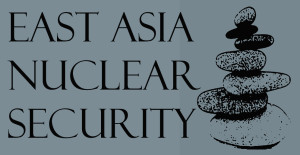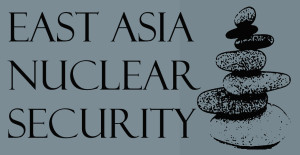Daily Report Archives
Established in December 1993, the Nautilus Institute’s *N*ortheast *A*sia *P*eace and *S*ecurity *N*etwork (NAPSNet) Daily Report served thousands of readers in more than forty countries, including policy makers, diplomats, aid organizations, scholars, donors, activists, students, and journalists.
The NAPSNet Daily Report aimed to serve a community of practitioners engaged in solving the complex security and sustainability issues in the region, especially those posed by the DPRK’s nuclear weapons program and the threat of nuclear war in the region. It was distributed by email rom 1993-1997, and went on-line in December 1997, which is when the archive on this site begins. The format at that time can be seen here.
However, for multiple reasons—the rise of instantaneous news services, the evolution of the North Korea and nuclear issues, the increasing demand for specialized and synthetic analysis of these and related issues, and the decline in donor support for NAPSNet—the Institute stopped producing the Daily Report news summary service as of December 17, 2010.

Shinichi Ogawa explores the probability of Japan heightening its conventional deterrence capabilities and the possible ways in which it may do so. His report first evaluates how Japan might augment its defensive capabilities (and invest in offensive weapons) were it’s military relationship and security guarantees with the United States to dissolve. He then assesses possible changes to Japan’s conventional military capabilities were the United States to maintain its ‘nuclear umbrella’ over Japan–and whether or not this arrangement could be compatible with a Northeast Asian Nuclear Weapons Free Zone.
Shinichi Ogawa is a visiting professor at Ritsumeikan Asia Pacific University.
This report was originally presented at the East Asia Nuclear Security workshop held on November 11, 2011 in Tokyo, Japan.
Go to the article
Nautilus Peace and Security Weekly Report—Contributor’s blog entry for Climate Change Adaptation.
In recent years, climate change has become a key policy and governance challenge that contains potentially severe implications for building peace, creating security, and restoring sustainability….
Go to the article

Pan Zhenqiang states that both North Korea’s weapons program and US deterrence create an atmosphere of distrust and insecurity in Northeast Asia. Pan argues that establishing a regional NWFZ “has to be a multilateral, comprehensive, and cooperative process, aimed first and foremost at improving the security environment, and strengthening the political basis for a nuclear free arrangement that will take into consideration the security interests of all the countries concerned, and thus be acceptable to all of them. There is no alternative to such a multilateral, comprehensive, and cooperative approach to resolving the DPRK nuclear crisis, and US [deterrence] as well, thereby effectively removing the two major obstacles to the NWFZ in Northeast Asia.”
Major General Pan Zhenqiang (retired) is deputy chairman of the China Foundation for International Studies, senior adviser to the China Reform Forum, and director of research at the Institute for Strategy and Management of the Central University of Finance and Economics in China.
This report was originally presented at the East Asia Nuclear Security workshop held on November 11, 2011 in Tokyo, Japan. All of the papers and presentations given at the workshop are available here, along with the full agenda, participant list and a workshop photo gallery.
Go to the article
Nautilus Peace and Security Weekly Report—Contributor’s blog entry for DPRK.
Isolation threats don’t seem to bother North Korea. They are increasingly isolating themselves and yet bringing other countries together in new ways…
Go to the article

Ken Jimbo assesses the dynamics of U.S. extended nuclear deterrence in Asia–especially on the Korean peninsula and in China–and how these relate to Japan’s “dynamic defense” policy adopted in the 2010 National Defense Program Guidelines. He states that “[s]ince the strategic landscape in Northeast Asia is increasingly complex in character, it is difficult to apply the concept of deterrence in a “one-size-fits-all” manner. For extended deterrence to succeed, the Japan-U.S. alliance needs continuous updates on the assessment of the distribution of powers and threats, then to apply tailored deterrence to the regional dynamic.”
Ken Jimbo is an Associate Professor at Keio University, Japan.
This report was originally presented at the East Asia Nuclear Security workshop held on November 11, 2011 in Tokyo, Japan. All of the papers and presentations given at the workshop are available here, along with the full agenda, participant list and a workshop photo gallery.
Go to the article
Nautilus Peace and Security Weekly Report—Contributor’s blog entry for DETERRENCE.
Dhanapala argues that a Northeast Asian (NEA) NWFZ is incompatible with nuclear extended deterrence, and rejects a transitional period in which states comply fully with a NWFZ treaty…
Go to the article

Jayantha Dhanapala states that a Nuclear Weapons Free Zone (NWFZ) in Northeast Asia could prove to be a reasonable solution to the complex issues in the region, but that the exceptions and ambiguities that have been allowed during past negotiations of NWFZs must be avoided. Dhanapala argues that compromising on fundamental NWFZ principles—namely that all parties must verifiably dismantle any nuclear weapons and rescind extended nuclear deterrence agreements with Nuclear Weapons States (NWS)—will only exacerbate security concerns.
Jayantha Dhanapala is a former Ambassador of Sri Lanka and a former UN Under Secretary-General for Disarmament Affairs.
This report was originally presented at the East Asia Nuclear Security workshop held on November 11, 2011 in Tokyo, Japan. All of the papers and presentations given at the workshop are available here, along with the full agenda, participant list and a workshop photo gallery.
Go to the article



